
Vote in the A.S. Elections!
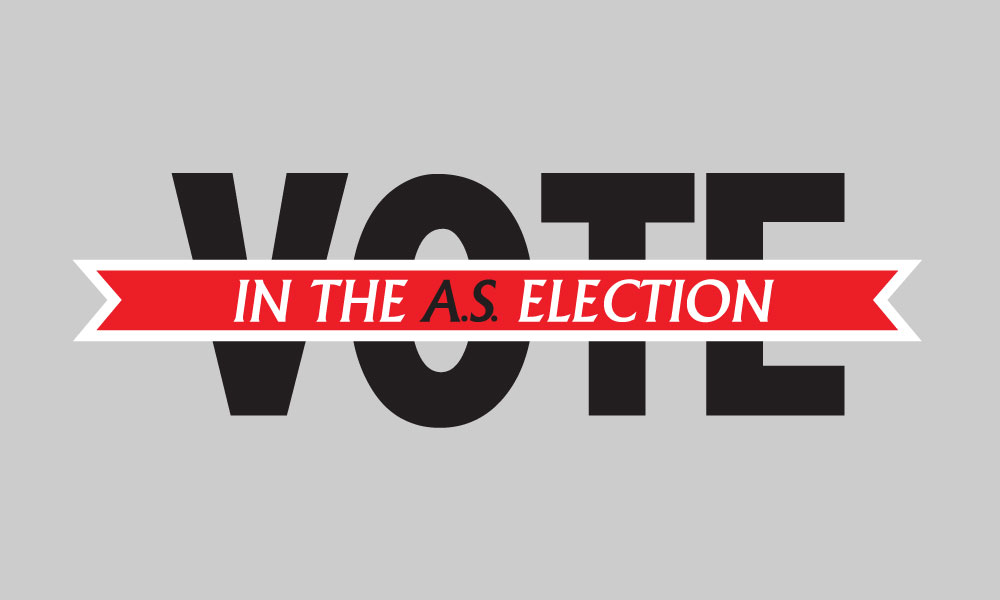
A.S. Elections
Students, A.S. Elections are happening this month!
Starting on Monday, March 20 at 8 a.m. through Thursday, March 23 at 7 p.m., vote on the A.S. Elections website to make your voice heard!
Other Important Dates:
- March 14-16: Executive Officer Candidate Debates, Union Courtyard, 12-1 p.m.
- March 17: Write-In Candidate Applications Due, 12 p.m.
- March 23: A.S. Election Results Announced, Union Courtyard, approx. 9 p.m
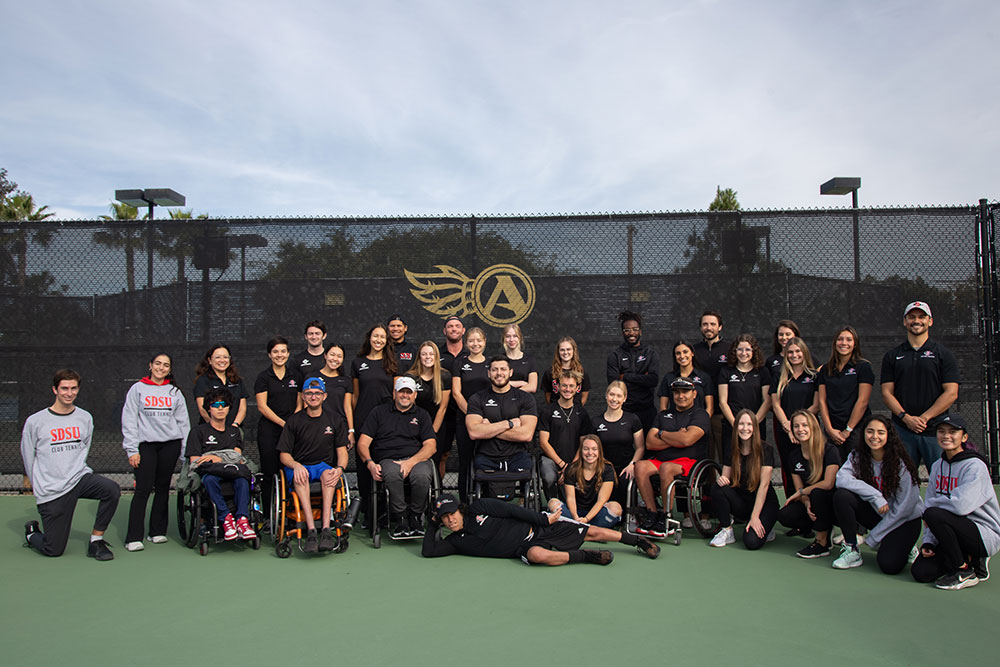
Disability Celebration Month
By AJ Munoz-Bond, Interim Director of Adapted Athletics
“As an adaptive athlete, when you win a competition, you actually win twice. First, when you overcome the narrative of being unable to match up in society. Second, when you beat your competitor.”
- Paralympian Donato Telesca, adapted by AJ Munoz-Bond
In 1987, President Ronald Reagan declared March National Disabilities Awareness Month, allowing a door to be opened in the minds of American people. Over the past three decades this door has opened wider, through community connection, groundbreaking civil rights legislation and the mutual understanding of inalienable rights we all share in this country. These efforts, tirelessly executed by countless individuals, have led to present day opportunities we can see exemplified on this campus. The Adapted Athletics program here at SDSU is just one of the successful endeavors made possible by those who came before us. Our program, through invaluable support by A.S. and Aztec Recreation, is designed to provide an environment of support for adaptive athletes through integration of high-caliber education, coaching and mentorship. We do this by embodying our values each and everyday called our C.R.E.E.D.
Commitment to being 1% better than we were yesterday.
Respect for the beliefs and goals of those around us as well as our own.
Excellence in every step that we take, and every wheel we push.
Empowerment to believe in our own capabilities and to reinforce the goals of those who stand with us.
Diversity, for it is easy to see the differences in one another, and much more powerful to accept those differences as strengths.
Through donor support, our adaptive family has been able to grow steadily over the past five years. More must be done to support our ambitious vision as we create a sustainable network of support to prepare and develop adaptive athletes for their personal, professional and athletic endeavors.
For Disability Celebration Month, multiple SDSU adaptive sport organizations (Adapted Athletics, Aztec Adaptive Sports and Adaptive Sports Physical Therapy) will join together. We invite the A.S. family to the following events:
March 22: Adaptive Sports Field Day
- 10 a.m. - 2 p.m., ENS Field 700
- Open to all members of the SDSU community to come out and participate!
- A day of fun recreational activities including games and an adaptive obstacle course and relationship building
March 25: Aztec Invite
- 9 a.m. - 3 p.m., SDSU Sports Deck
- The largest collegiate track and field event in San Diego with multiple adaptive athletes from our Adapted Athletics program competing to make Team USA for Paris 2024
Ongoing Adapted Athletics events to be aware of:
- October: Annual Lift-A-Thon Fundraiser
- Spring and Fall: ARC Fest

Jewish Heritage Month
Typically celebrated annually in May as Jewish American Heritage Month, this March marks the second Jewish Heritage Month at SDSU. This month, we honor, recognize and celebrate the numerous contributions Jewish people have made to our history, culture and society. Read below as members of our A.S. family reflect on what Jewish Heritage Month means to them:
______________
"For me, sports were not an environment that was very open to the Jewish community. Internally, I didn't have many Jewish role models at my temple that encouraged or supported athletics past childhood. Jewish athletes weren't exactly plentiful aside from Sandy Koufax, and the community's encouragement went toward other directions. Externally, there are many tropes regarding the lack of Jewish athleticism in quantity and quality too. As a former athlete in Club Sports, a current SDSU Coach and a former youth coach and teacher, I have a lot of pride in being a Jewish face in sports. Hopefully, it can encourage future youth who are uncertain about pursuing athletics as well as help be a counterexample to existing stereotypes."
Daniel Noble, Volunteer Sport Club Men's Ultimate Coach
______________
“This month is a great reminder to pay tribute to the contributions our ancestors made to the world we live in today. It provides us an opportunity to shed light on Jewish people throughout America's history, while also bringing awareness to the continued struggles Jewish people still face with discrimination and antisemitism.
To me, the Jewish faith is about appreciating the joy that comes from a community of people who are interested in deepening their own self-awareness as well as improving the world through delivering justice to all who deserve it and making that tradition relevant for future generations. I am proud to be Jewish and I hope to continue to teach and carry on the traditions that I grew up practicing with my own family.”
Jamie Alto, Aztec Lanes Manager
______________
“To me, Jewish American History Month is celebrating that what is seen as “American” culture is not a monolith, but instead made up of all the different practices of the groups now living in the land referred to as the United States, including the practices of the Jewish people. Seeing SDSU celebrating Jewish American history means a lot because it shows that SDSU puts efforts into being a place to appreciate our heritage and history, and it makes it feel more welcoming and safe in a world where being Jewish and celebrating that existence and history feels neither safe nor welcome. It’s important to celebrate life, vibrancy, beauty, history and the rich traditions in Jewish culture our people brought to this land and how we have made positive contributions to it and to the entire world. Because of the millennia of antisemitism established worldwide, it is easier to simply look at Jewish people and history with a negative mindset, but this month is an opportunity to try to unlearn those systems and celebrate the beauty in something that has not been enforced as such.”
Lily Eckoff, A.S. Sustainability/Green Love Commissioner
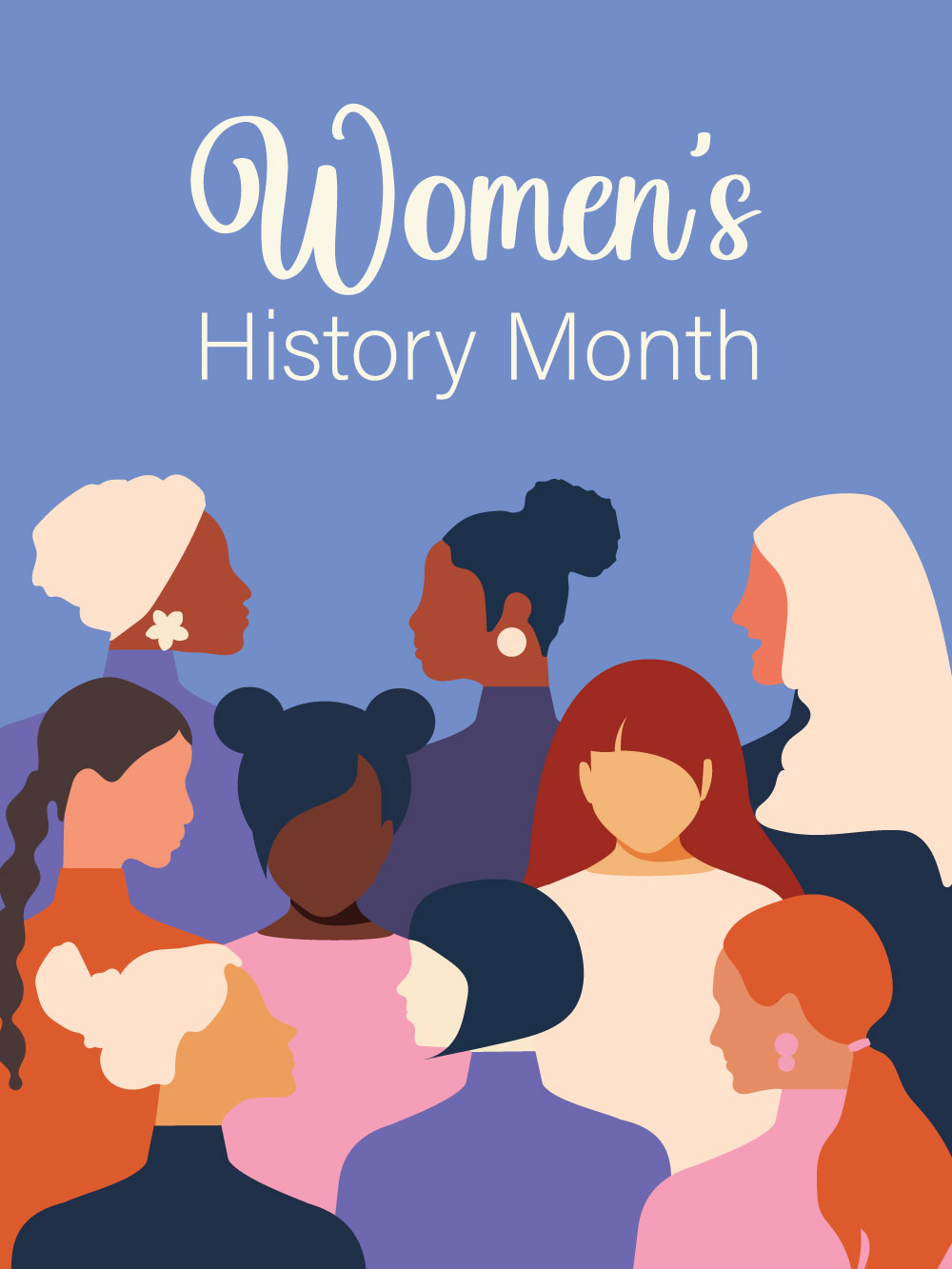
Women’s History Month
Women’s History Month was first celebrated in 1978 as Women's History Day in Sonoma County, Calif. With the help of Gerda Lerner, a women’s history author, and the National Women's History Alliance, Women’s History Day was recognized as a national week in 1980 and then a month in 1987. Now, we celebrate Women’s History Month every March to highlight the contributions of women to events in history and contemporary society.
In honor of Women’s History Month, read below to learn more about some of SDSU’s famous women alumni:
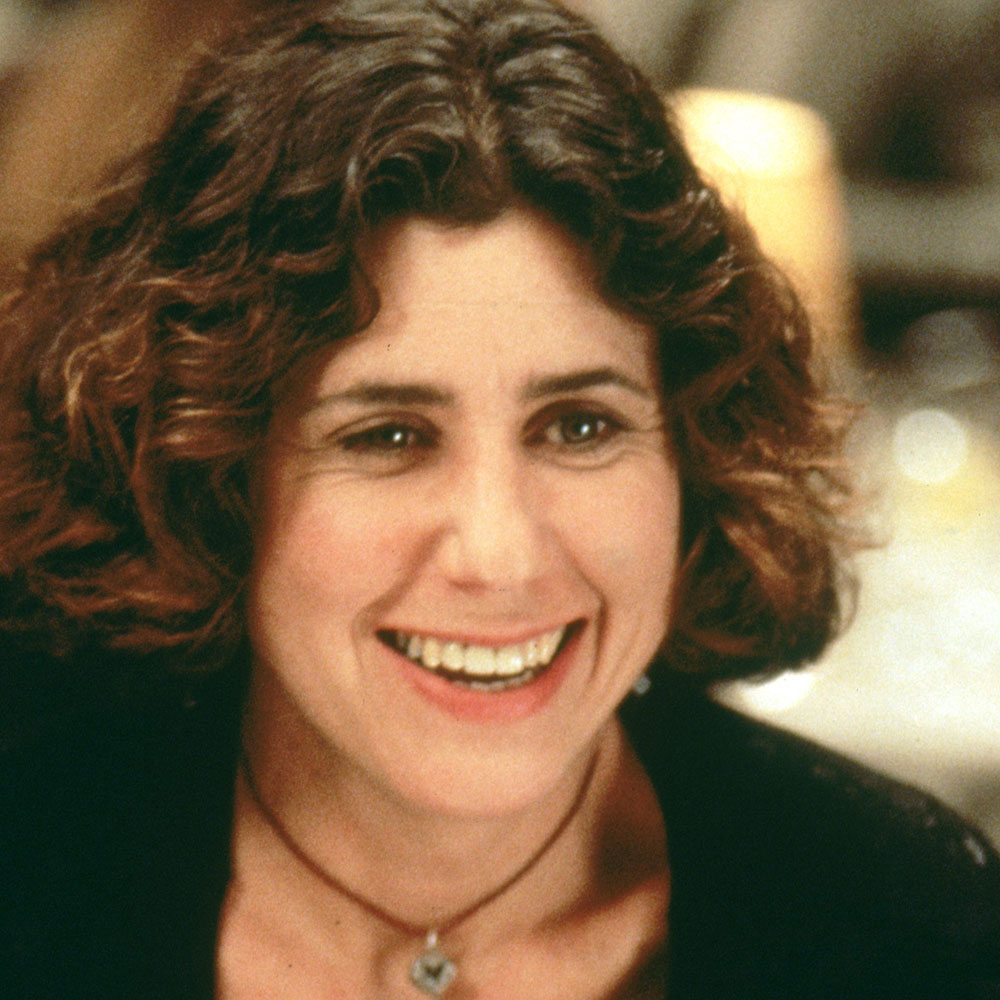
Julie Kavner — Actress
- Kavner is best known for her voice role as Marge Simpson on The Simpsons in which she won the Primetime Emmy Award for Outstanding Voice-Over Performance in 1992
- In addition to playing Marge Simpson, Kavner was also the voice actor for other characters on The Simpsons, including Marge’s mother, Jacqueline Bouvier and Marge’s sisters Patty and Selma Bouvier
- Kavner also voice acted for the films Dr. Doolittle, The Lion King 1 ½, and Click
_________
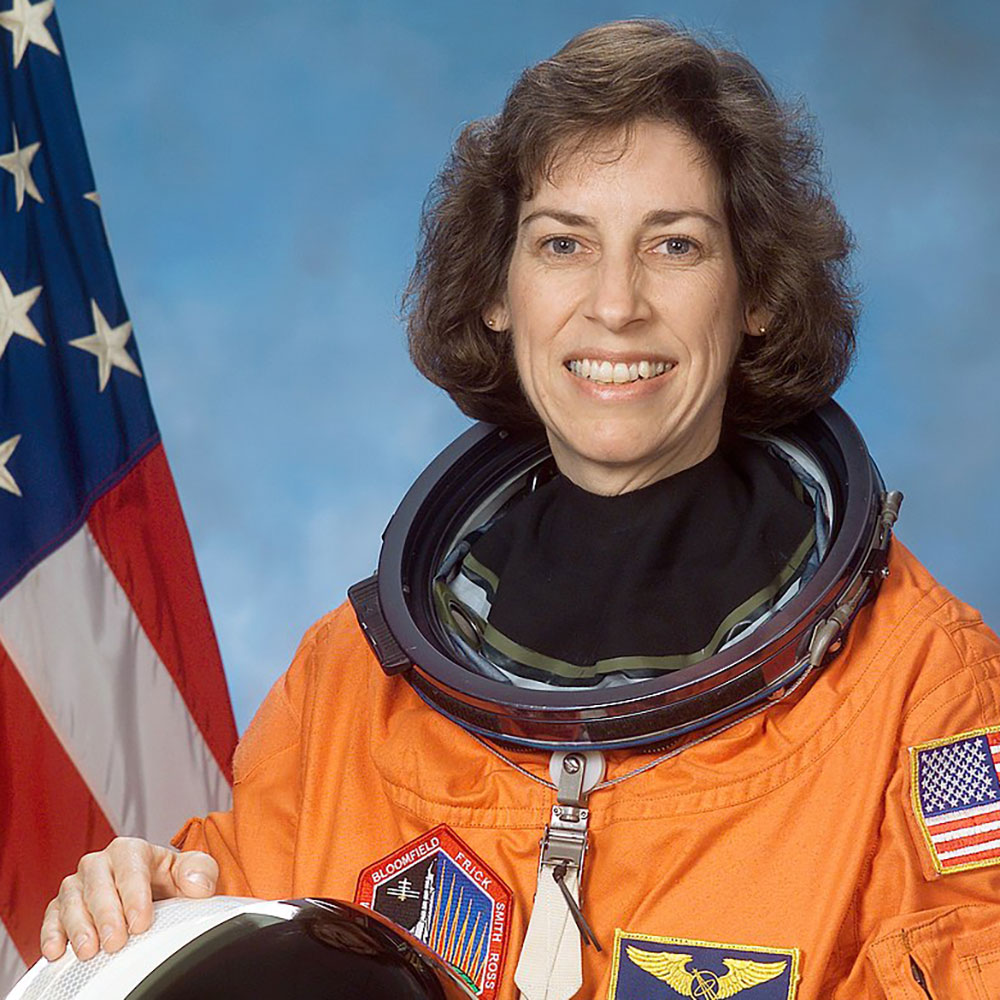
Ellen Ochoa — Engineer and Astronaut
- A graduate of SDSU in 1980, Ochoa was the first Hispanic woman to go to space in 1993
- In addition, she was the first Hispanic director and the second female director of the Johnson Space Center
- Ochoa has received many awards including seven NASA awards as well as being part of the 2017 class of the United States Astronaut Hall of Fame
_________

Marion Ross — Actress
- Ross is best known for her 10 year role as Marion Cunningham on the TV sitcom, Happy Days
- Throughout her career, Ross was nominated for five Primetime Emmy Awards as well as a nomination for the Golden Globe Award for Best Supporting Actress
- Ross is also known for her voice-over work on King of the Hill, SpongeBob SquarePants, The Drew Carey Show and Gilmore Girls
_________
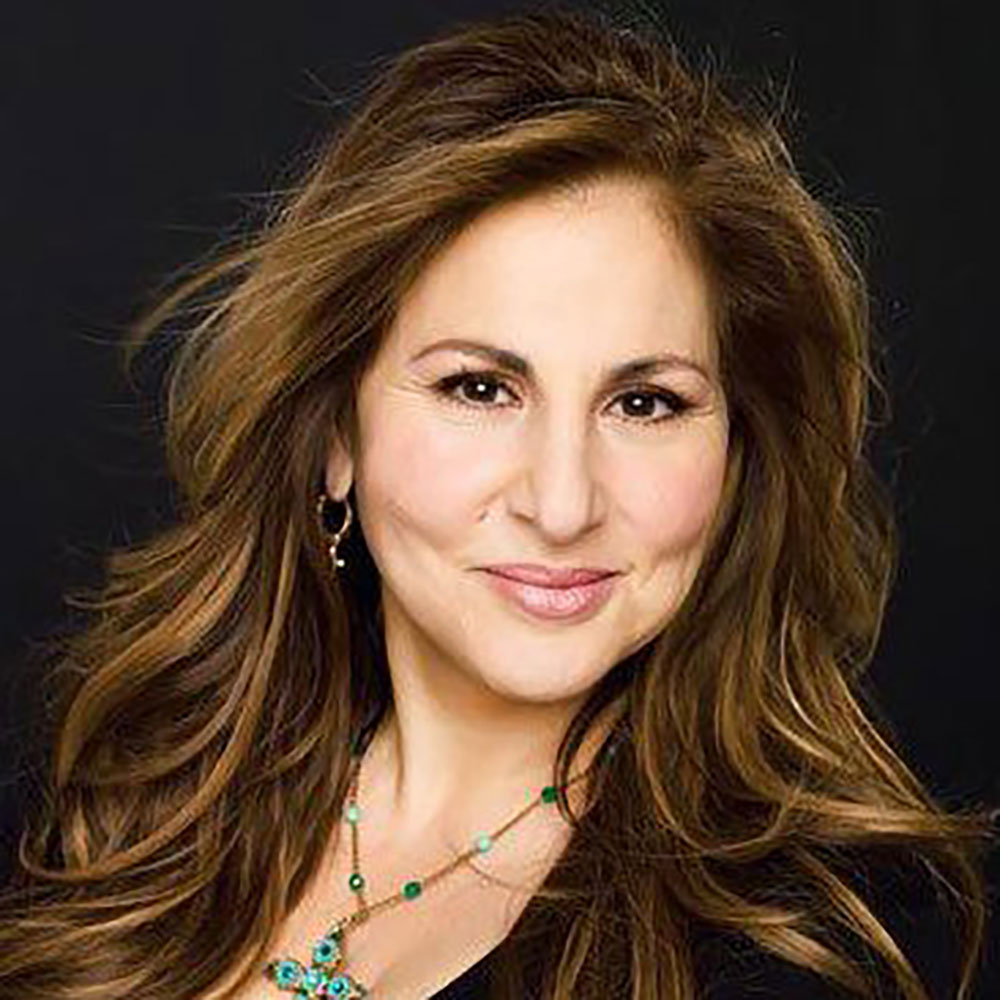
Kathy Najimy — Actress and Activist
- Najimy graduated from SDSU in 1995 and is known for her roles in the films Soapdish, Sister Act, Hocus Pocus, The Wedding Planner and Hocus Pocus 2
- In addition to her acting work, Najimy has spoken out in support of equal rights, safety and self-esteem for women and girls, LGBTQIA+ rights, AIDS awareness, domestic violence, body image and civil rights
- She has also advocated for animal welfare, winning PETA’s Humanitarian of the Year award in 2000 and their Compassionate Action Award in 2014
_________
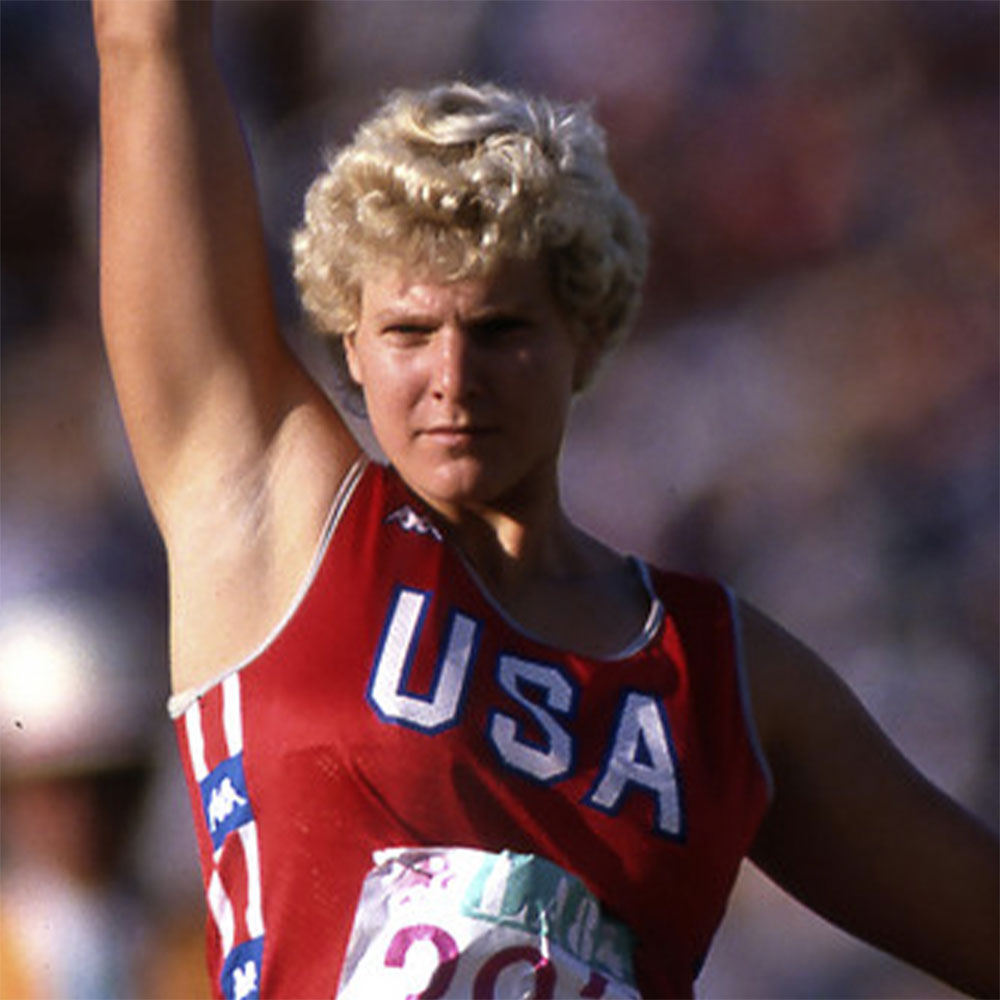
Ramona Pagel — Shot Putter
- Pagel is a retired shot putter, making four consecutive Olympic teams for the U.S. from 1984 to 1996 and won a full set of medals in three showings at the Pan American Games
- Her personal best was 20.18 meters which was the American record for 25 years
- Throughout her career, Pagel was ranked in the top 10 of American shot putters for 16 years in a row from 1981-1996, including ranked first from 1985-1989
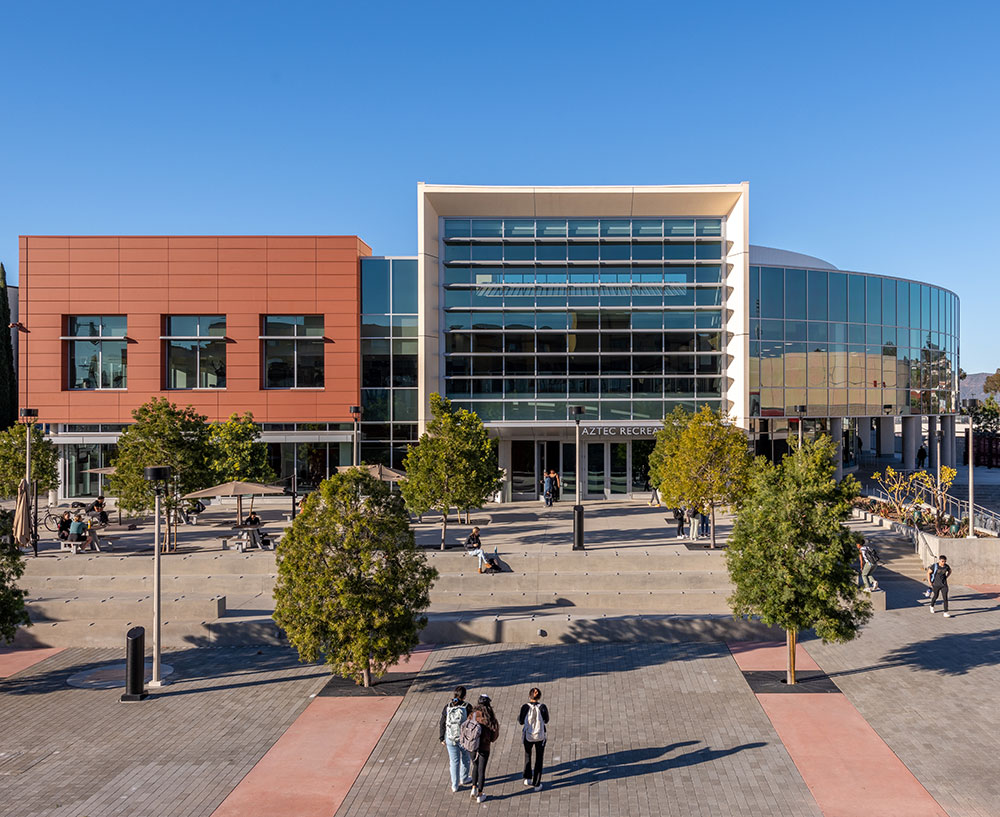
ARC Achieves Top Sustainability Certification
This article previously appeared in the SDSU NewsCenter.
Designed with a variety of sustainability features to conserve water and function with green energy, the expansion and renovation of San Diego State University’s Aztec Recreation Center (ARC) has received LEED Platinum status for New Construction.
The first phase of the project, the expansion, began in spring 2020 and was completed in fall 2021. The renovation portion of the project was completed last summer.
A proposed fee to expand and renovate the Associated Students-managed facility was approved in a spring 2018 referendum. Throughout each step of the project, students were heavily involved in decision making to not only meet current and future recreation needs, but to ensure the building met the highest sustainability standards.
“Associated Students is a student-led organization — not only on paper but genuinely in practice,” said A.S. Sustainability Coordinator Charlotte Roberts. “Therefore, throughout the entirety of this project, students worked closely with SDSU Planning, Design and Construction as well as the architect, contractor and LEED consultant teams to ensure sustainability principles were incorporated into every aspect of the building.”
Sustainable elements include collection tanks underneath the ARC courtyard to store up to 200,000 gallons of both rainwater and HVAC condensate that are used for low-flow toilets as well as outdoor drip irrigation. The project also diverted 87% of construction waste from the landfill and recycled it for new purposes, significantly higher than the City of San Diego minimum requirement of a 65% diversion.
Associate Executive Director and Aztec Recreation Director Mark Zakrzewski is particularly proud of the ARC’s fully electric operations.
“There are no fossil fuels in the building — it’s a gas-free, all-electric building,” Zakrzewski said. “That is the future of building. It’s exciting to say we were able to deliver to students and be on the front edge of that type of construction.”
To power the building, the ARC’s electricity is generated onsite by a 375 kW rooftop solar system with no fossil fuels such as natural gas used.
The U.S. Green Building Council identifies the LEED rating system as the most widely used green building rating system in the world and “a globally recognized symbol of sustainability achievement, and it is backed by an entire industry of committed organizations and individuals paving the way for market transformation.”
To achieve LEED certification, projects earn points by adhering to certain guidelines for areas such as carbon, energy, water, waste and materials. Only 3.7% of all LEED New Construction buildings in the world are certified at the platinum level of 80 points or more, with the ARC receiving 90 points.
“I’m very proud of this since having the ARC LEED Platinum certified was one of the main priorities of the students,” said A.S. Recreation and Wellness Commissioner Lauren Samidi. “Because this building is going to be on our campus forever, we needed to make sure it was good for the environment while also good for our students. A big part of staying healthy is also staying sustainable.”
The ARC boasts 134,000 sq. ft. of space to meet the current and future recreation, fitness and wellness needs of SDSU students. The space includes an indoor running track, six multi-use courts, five group fitness studios, a 41-foot climbing wall and 25,000 sq. ft. of weight and cardio equipment space.
The ARC is now working towards a LEED Platinum for Existing Buildings Operations and Maintenance to achieve LEED Double Platinum status, the highest title for all green buildings. To achieve a double status, the building must be in operation for over one year. The Conrad Prebys Aztec Student Union achieved this status in 2017.
“The future is sustainability,” said A.S. Sustainability Commissioner Lily Eckoff. “Having this sustainable building makes the building that much more special because you know you’re not only contributing to the health and well-being of our student population but also the health and well-being of our San Diego community and world.”
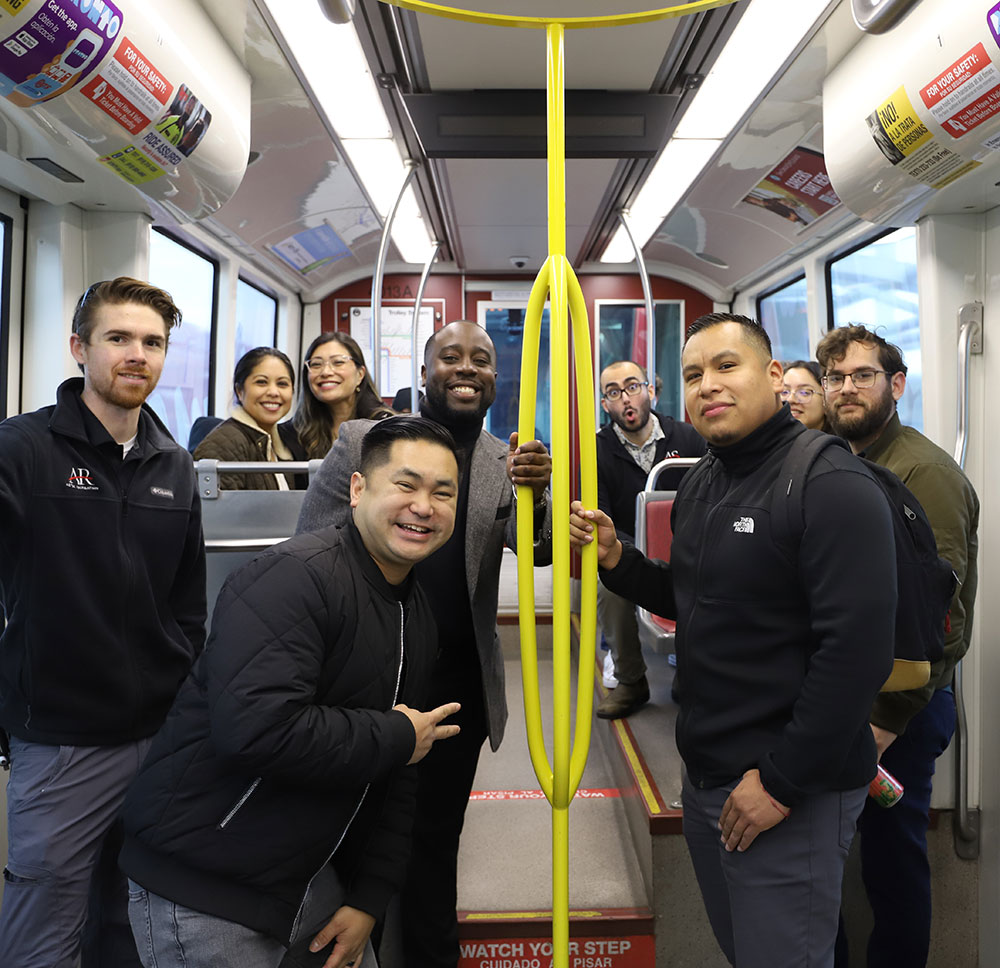
A.S. Sustainability Tip
MARCH
By Charlotte Roberts, A.S. Sustainability Coordinator
It's been three years since everything changed and our homes became our world. During the pandemic, the number of people working from home in the U.S. tripled,1 which caused a significant drop in global carbon emissions — 2.4 billion tons of CO2 to be exact. That’s the equivalent of taking 500 million cars off the world’s roads for a year.2
That massive lifestyle shift also had less desirable consequences. Many folks (including myself) struggled in a fully virtual environment where finding a sense of belonging meant almost constant device use and a highly sedentary work flow. Fortunately, being back on campus means doing what we do best: building community and cultivating meaningful programs amidst vibrant student life.
It also means the return of commutes. According to the University’s Climate Action Plan, transportation by single occupancy, gas-powered vehicles is the largest contributor to climate change on our campus. Cars and trucks emit an average of one pound of CO2 per mile driven.3 That being said, I’m not proclaiming we should all bike to work every day. Unfortunately, modern San Diego wasn’t designed to accommodate 3 million biking and walking citizens. Our county was developed over the twentieth century to prioritize automobiles, which means adopting any other habit today can be impractical.4
Yet if we plan ahead, get creative and find a balance that works well for our unique needs, we can greatly reduce the environmental impact of our daily commutes. A UCLA study found that compared with driving alone, “taking public transportation reduces CO2 emissions by 45%, decreasing pollutants in the atmosphere and improving air quality.5 I’m actually typing this from the number 11 MTS bus as we cruise down Adams Ave en route to SDSU. I still drive my car to work most days but genuinely enjoy taking the bus when I can. Hopefully you feel encouraged to infuse alternative transportation into your own life after reviewing my tips below.
March A.S. Sustainability Tips to Reduce Your Transportation Emissions:
- Ask your local representatives to support sustainable city planning projects such as bike lane additions, roundabout installations and bus or trolley route expansions. Circular SD is a nonprofit you can get involved with to advocate for these projects in your neighborhood.
- Carpool with friends, family and coworkers any time it is feasible.
- Try out the trolley or bus! This may not provide the same solitude and comfort as your car, but not having to operate a vehicle can save you money and frees up time for reading, meditation, checking emails or just appreciating city views from a new perspective. Start by taking a trip with a buddy during the daytime and remember to stay aware of your surroundings.
- Be thoughtful about your driving occurrences. Can you strategically combine errands this week to reduce your extra trips?
- When it's time for a new car, consider an affordable EV or hybrid option, such as these. You might even qualify for a rebate or tax credit.
- Sustainability isn’t all or nothing. If everyone at A.S. used alternative transportation for just one day a week, we would still make a huge positive difference.
If you would like additional information or have questions about anything listed above, don’t hesitate to email me at cmroberts@sdsu.edu!
1 U.S. Census Bureau
2 Stanford Earth Matters
4 UCLA
4 Smart Cities Dive
5 UCLA
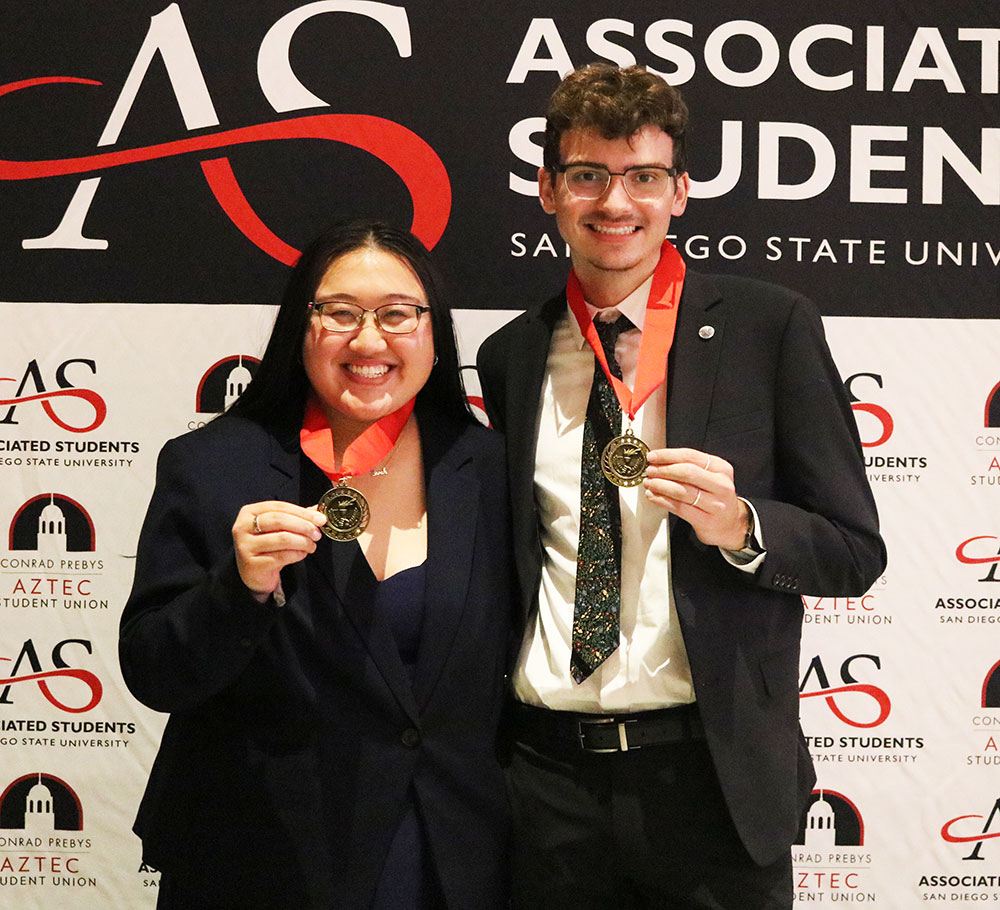
Aztec Achievement Awards
Nominations are open for the Aztec Achievement Awards!
The annual Aztec Achievement Awards recognize excellence in the numerous contributions students, faculty, staff and community members make to SDSU.
Nominate someone today! For a description of all Aztec Achievement Awards available and to make a nomination, go to as.sdsu.edu/aaa. The deadline to submit nominations is Sunday, March 5 at 11:59 p.m. PT.
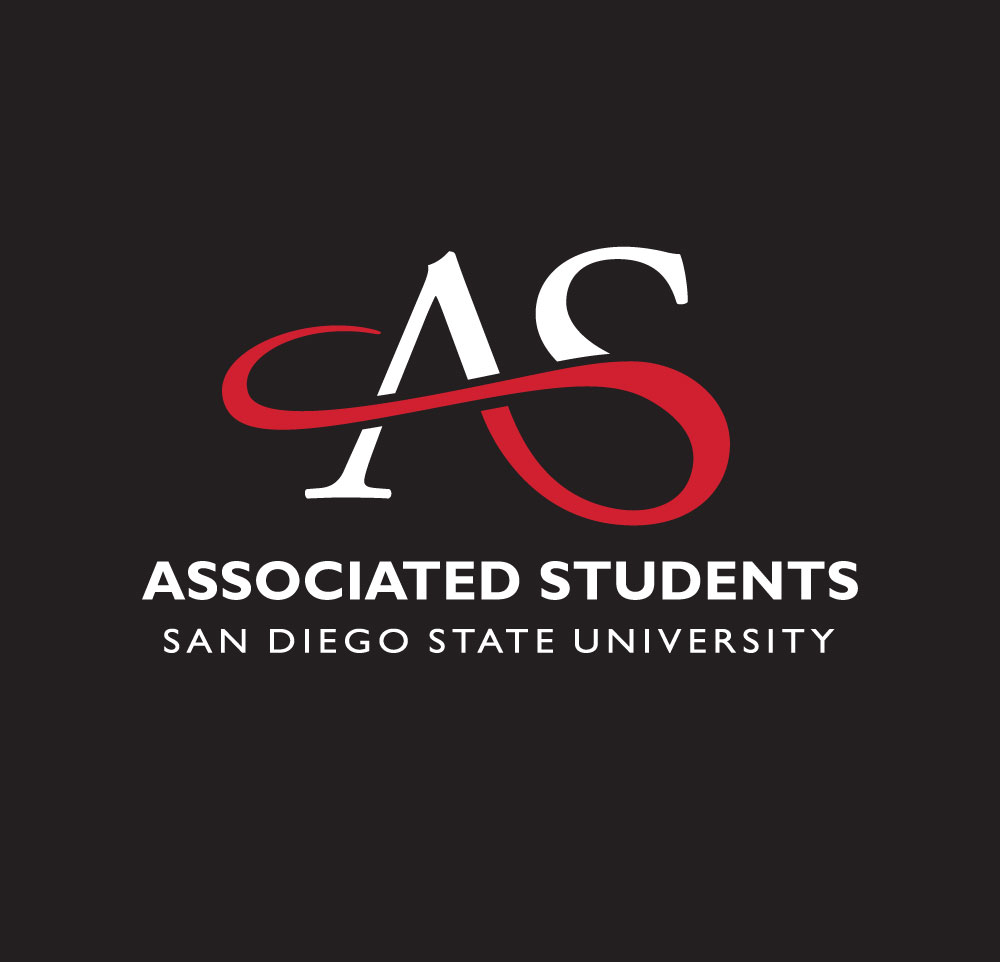
New A.S. Employee
Welcome Austin, our newest A.S. employee hired in February!
________
Austin Paccione, MBAC Instructional Supervisor
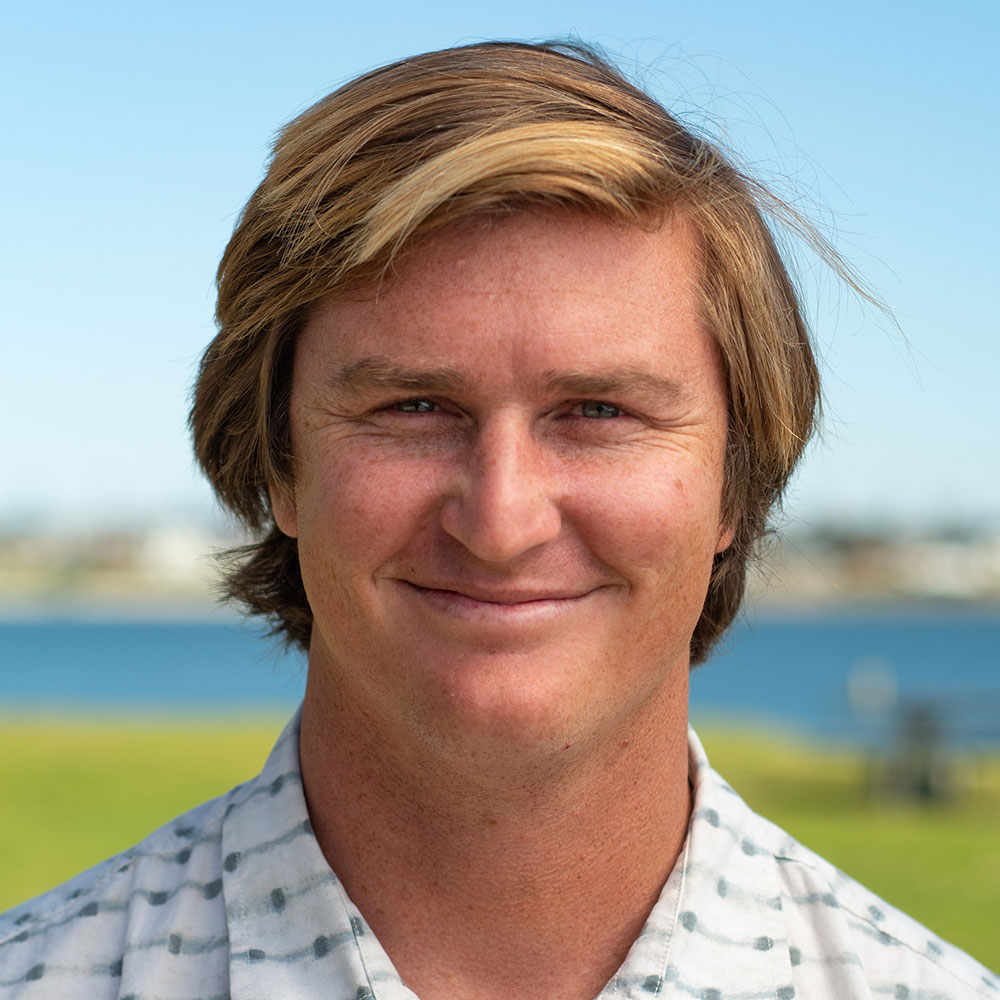
Hi! My name is Austin and I am the new Instructional Supervisor at the Mission Bay Aquatic Center. I graduated from SDSU with a Bachelor of Arts in Public Administration and a minor in Spanish. My first experience with MBAC was an ENS wakeboarding class during my senior year at SDSU. My passion for outdoor education led me to work as a ski instructor in Montana and Germany and I have continued to teach at MBAC throughout the years. I am confident my watersports experience, interpersonal skills and passion for outdoor education will ensure future students and employees enjoy the best watersports experience in a safe, welcoming and fun environment. In my free time, I enjoy surfing, skiing, camping and traveling and I have been fortunate enough to have flown around the world twice and have traveled to six of the seven continents. I have a passion for immersing myself in new cultures and love to return from trips with new experiences and tasty recipes to recreate at home.
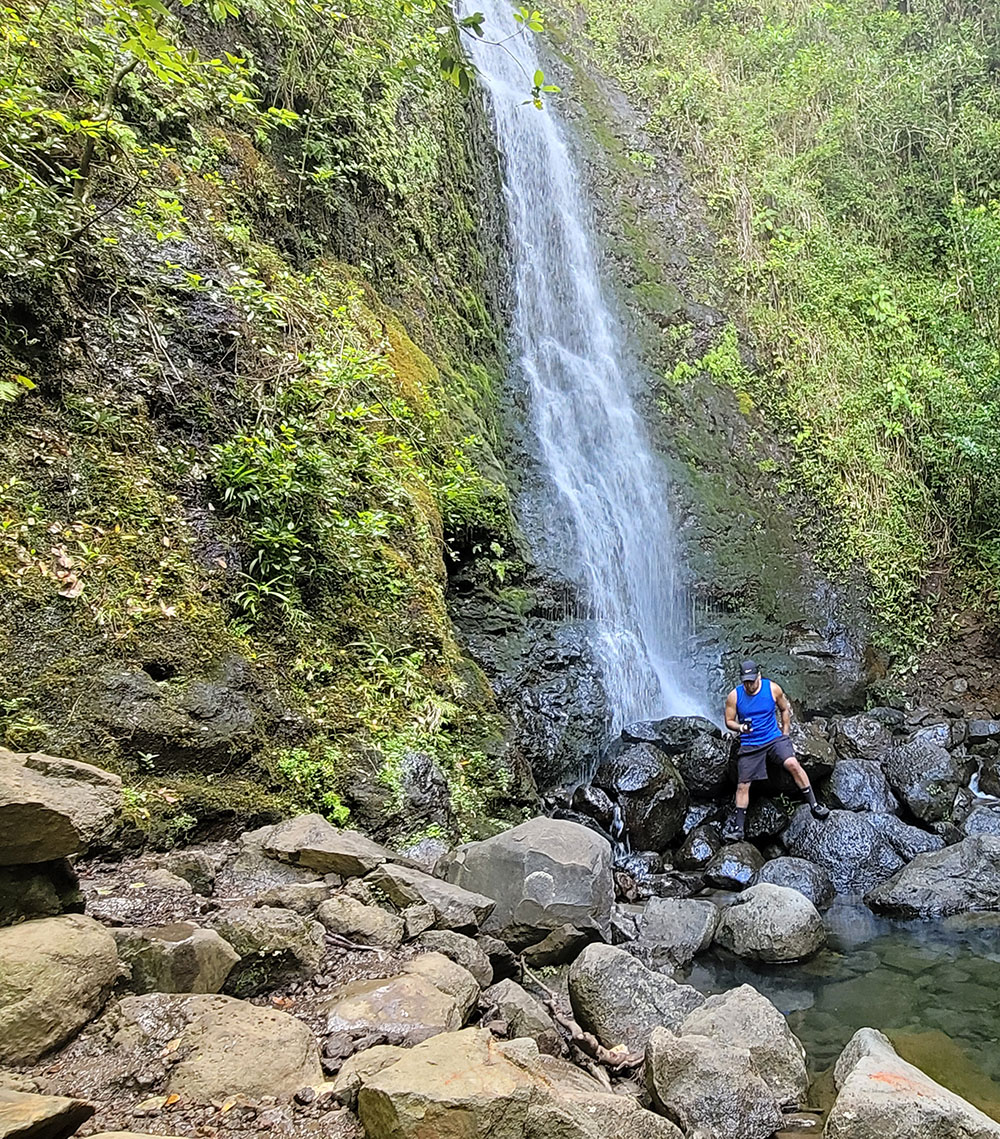
15 Questions
Rodrigo Mercado
- What is your name and title?
-
Rodrigo Mercado - Human Resources Associate Director
- Which A.S. department do you work in?
-
Human Resources. I manage A.S.’ full-time recruitment program, on-boarding, coordinate DEI efforts and oversee employee relations events.
- How long have you worked for A.S.?
-
5 months and enjoy everything about it!
- What do you like most about working for A.S.?
-
Working along with my colleagues for an organization that is student focused. I enjoy seeing the impact we have on students.
- What was the last movie you saw? Thumbs up or thumbs down?
-
Avatar: The Way of Water. Thumbs up.
- What is your favorite dessert?
-
Ice cream (vanilla, pistachio, butter pecan and mint chocolate chip) and chocolate chip cookies. I do not know, I just enjoy a lot.
- If you had to move to another country, which one would you choose?
-
Japan! Such a fun and efficient country. I got an opportunity to visit Tokyo in 2018 with college friends and loved everything about it. The culture is very respectful and beyond considerate, which I appreciate very much. I also got to enjoy some Mario Kart on the streets of Tokyo. Most importantly the food! Sushi, ramen, soba, wagyu etc.!
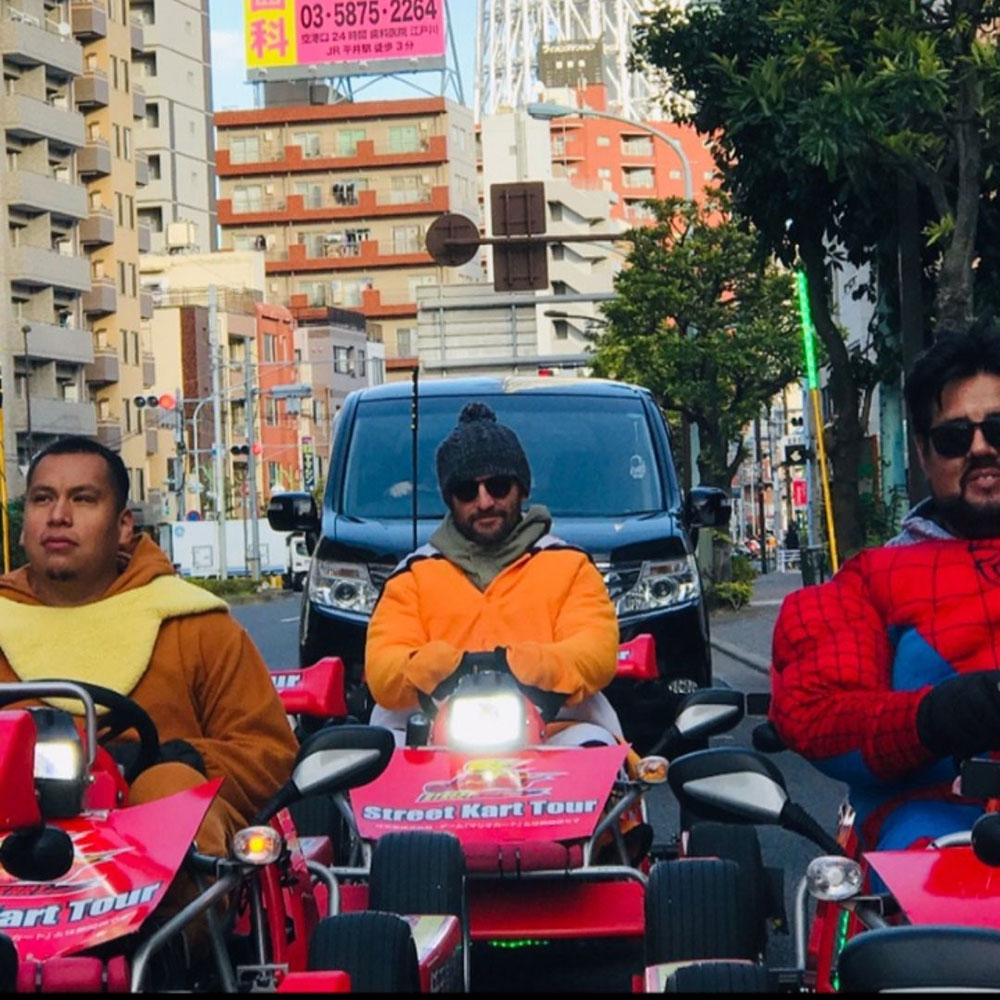
From left to right: Rodrigo, an unknown tourist and Micheal, a college friend, in Toyoko, Japan - Do you prefer pens or pencils?
-
Pens. I do not use pencils often.
- What is your favorite book?
-
“Born to Run” by Christopher McDougal, non-fiction. It’s a story about McDougal, a long-distance runner researching techniques to prevent injury that often occurs due to his long-distance training. Determined to limit his injuries, he finds himself learning from the tribe of Tarahumara. The Tarahumara are a tribe located in the Copper Canyons in the State of Chihuahua, Mexico and known for their long-distance running through many techniques, including a proper diet. In western culture they are known as “super athletes” but in their native tongue they call themselves Raramuri “the one with light feet.” This story goes beyond one individual’s personal journey of long-distance training but exposes themselves to learn from others, self-reflection and happiness.
- What type of pets do you have and what are their names?
-
I do not have any pets but my niece has four French bulldogs. They are part of the family so I definitely enjoy their big personalities. Their names are Nala, Peanut, Ash and Spanky.

- What is your favorite breakfast food?
-
I’m a big foodie so narrowed my selections to the following:
- Chorizo (longaniza) con huevo y papas with side of pinto beans, queso fresco and tortillas.
- Country fried steak with over easy eggs, hash browns (well done), biscuits and gravy, and bacon with freshly squeezed orange juice. - “Most people don’t know that I like to…
-
…hike a lot. Some of the hikes I enjoyed the most are Mount San Antonio, also known as Mt. Baldy, the tallest peak in the San Gabriel Mountains at 10,068 feet and San Jacinto Peak in Palm Springs, also known as Cactus to Clouds at 10,834 feet. Happy trails!"
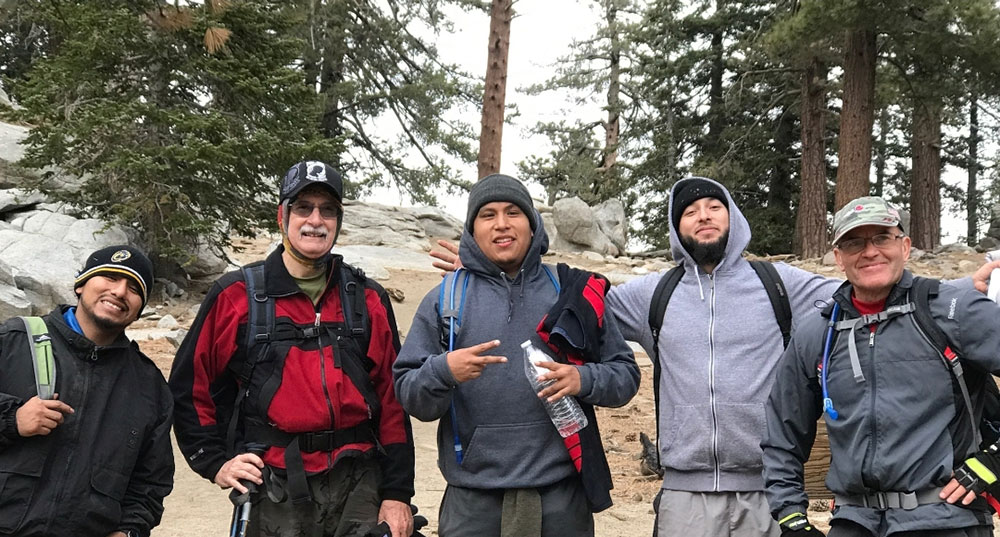
Rodrigo with his friends Alberto (far left) and Jesus (second from right) with some hikers they met along the way at San Jacinto Peak (Cactus to Clouds) in Palm Springs - What does your perfect burger have on it?
-
Cooked medium rare with mayo, ketchup, mustard, onions (red raw onions), grilled onions, lettuce, tomatoes, sliced pickles, American cheese, jalapeños and bacon!
- If you had to sing karaoke right now, which song would you pick?
-
It would be either Leo Dan – “Toquen Mariachis Canten” or Anderson .Pakk – “The Bird.” Both of these tracks I feel tell a story about appreciating life. They are relatable when it comes to life experiences and speak on the concept of love and the consideration we should have for one another.
- What is one of your favorite things to do on the SDSU campus?
-
Ordering food from Chipotle or The Habit.
Entertainment
VIEJAS ARENA


Aztecs Basketball Home Games

Calendar
MARCH 2023





















